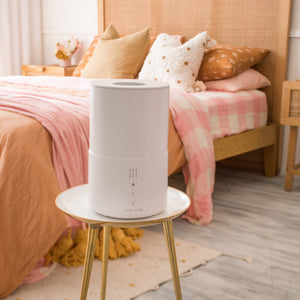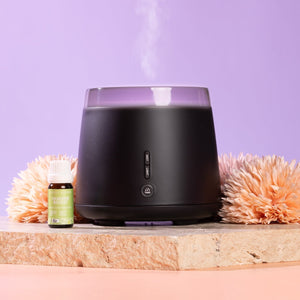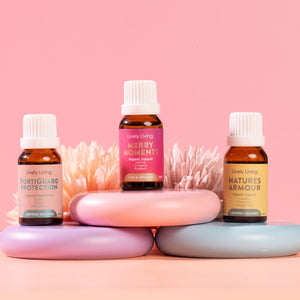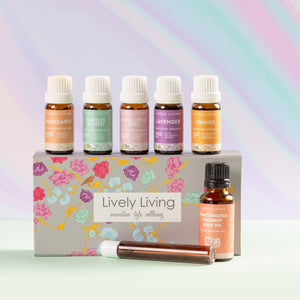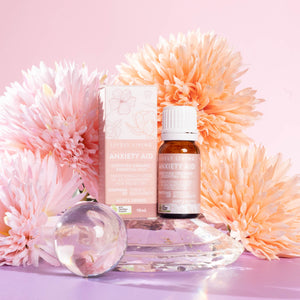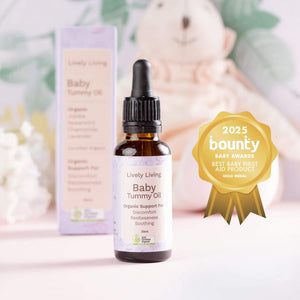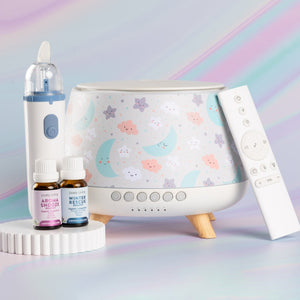Natural Approaches to Managing Seasonal Congestion: A Guide
Feeling that all-too-familiar tickle in your nose or pressure in your sinuses as the seasons change? Seasonal congestion can truly disrupt your comfort and daily life. But before you resign yourself to another allergy season battling allergy symptoms with conventional drugs, explore the variety of natural approaches to managing seasonal congestion. These methods focus on providing relief and supporting your body's own healing mechanisms, often without the undesirable side effects common to some medications, making this a helpful season survival guide.
Table Of Contents:
- Understanding Seasonal Congestion
- Stay Hydrated
- Use a Neti Pot or Saline Nasal Spray
- Try Essential Oils
- Boost Your Diet for Immune Support and Reduced Inflammation
- Practice Steam Inhalation
- Keep Your Environment Clean – Your Home Sanctuary
- Try Acupressure for Sinus Relief
- Exercise Regularly for Better Breathing
- Use Natural Antihistamines and Immune Modulators
- Practice Stress Reduction for Overall Well-being
- Managing Allergies with Pre-existing Health Conditions
- Seeking Professional Advice and Reliable Information
- Conclusion
Understanding Seasonal Congestion
Seasonal congestion, frequently a part of allergic rhinitis or hay fever, typically arises when your immune system overreacts to airborne particles prevalent during certain times of the year. Common triggers include pollens from trees, grasses, and weeds, as well as mold spores and dust mites. When you encounter these allergens, your body releases histamines and other chemicals, causing inflammation in your nasal passages and leading to that uncomfortable stuffy nose, sneezing, itchy eyes, and sometimes even fatigue that impacts everyday health.
Unlike a common cold, which is caused by viruses, seasonal allergies are an immune response to environmental factors. However, strengthening your immune system can be beneficial for both, especially as flu season can sometimes overlap with allergy season. Natural approaches aim to soothe this inflammation, reduce your exposure to triggers, and bolster your body's overall resilience, contributing positively to your mental well-being.
Stay Hydrated
One of the simplest yet most effective strategies for managing nasal congestion is to drink plenty of fluids. Proper hydration helps to thin mucus in your nasal passages and respiratory system, making it easier for your body to expel. Aim for at least eight glasses of water a day; more if you are active or in a dry climate.
Herbal teas can be a comforting way to increase your fluid intake and offer additional benefits. Peppermint tea can be soothing, ginger tea has anti-inflammatory properties, and chamomile tea may help calm irritation. Adding a squeeze of fresh lemon to warm water not only adds flavor but also provides a bit of Vitamin C, which is known to support immune function, a good tip for any flu season survival guide.
Dehydration can thicken mucus, making allergy symptoms feel worse and potentially leading to more blockages. So, keeping your water bottle filled is a fundamental step. This practice supports not just respiratory health but also overall digestive health and skin care from the inside out.
Use a Neti Pot or Saline Nasal Spray
For direct relief from a stuffy nose and irritated nasal passages, nasal irrigation is a time-tested technique. Using a neti pot involves gently flushing your nasal cavities with a saline nasal solution. This process helps to wash away allergens like pollen and dust, thin mucus, and moisturize the nasal environment, offering considerable relief from nasal congestion.
To prepare the solution, always use distilled, sterile, or previously boiled and cooled water to prevent infections. Mix about half a teaspoon of non-iodized salt (pickling or canning salt works well) into one cup of lukewarm water until it's fully dissolved. When looking into which neti pot to purchase, consulting product reviews can be helpful in choosing a quality wellness product.
If using a neti pot seems intimidating, a saline nasal spray offers a simpler alternative. These sprays deliver a fine mist of saline solution into the nostrils, achieving a similar moisturizing and clearing effect. They are readily available and convenient for quick relief throughout the day.
Try Essential Oils
Certain essential oils are well-regarded for their ability to help ease respiratory discomfort and clear a stuffy nose. Eucalyptus essential oil is a powerful decongestant, peppermint oil can help open airways and soothe headaches associated with sinus pressure, and tea tree oil has antimicrobial properties. Lavender oil may offer calming effects and reduce inflammation, while chamomile oil can be soothing.
There are several ways to use essential oils safely. You can add a few drops to a diffuser to disperse the aroma throughout a room, or add 2-4 drops to a bowl of hot water for steam inhalation (discussed further below). For topical application, such as on the chest or temples, it is critical to dilute essential oils with a carrier oil like coconut, jojoba, or almond oil to prevent skin care issues or an allergic reaction; a general guideline is 2-3 drops of essential oil per teaspoon of carrier oil.
It is important to choose high-quality, pure essential oils. Always perform a patch test before widespread topical use, and be aware that some oils are not suitable for children, pregnant women, or individuals with certain health conditions, including some pulmonary disease. It's wise to research or consult a professional if unsure. Below is a table outlining some beneficial oils:
| Essential Oil | Potential Benefits for Congestion | Common Uses |
|---|---|---|
| Eucalyptus | Decongestant, may help clear airways. | Diffusion, steam inhalation, diluted topical application. |
| Peppermint | Cooling, may open nasal passages, can ease headaches. | Diffusion, steam inhalation (use sparingly), diluted topical application on temples. |
| Tea Tree | Antimicrobial, may help with infection. | Diffusion, added to cleaning solutions, very diluted topical spot treatment. |
| Lavender | Calming, anti-inflammatory. | Diffusion, diluted topical application. |
| Chamomile (Roman/German) | Soothing, anti-inflammatory. | Diffusion, steam inhalation. |
Remember that essential oils are potent, and a little goes a long way. Their use is a popular topic in wellness topics forums and discussions about natural remedies.
Boost Your Diet for Immune Support and Reduced Inflammation
What you consume plays a significant role in how your body responds to allergens and manages inflammation. An anti-inflammatory diet can be a cornerstone of your strategy for combating seasonal allergies and nasal congestion. Include foods rich in omega-3 fatty acids, such as fatty fish (salmon, mackerel, sardines), flaxseeds, chia seeds, and walnuts, as these can help reduce inflammatory responses in the body.
Colorful fruits and vegetables are packed with antioxidants and vitamins that support immune function. Berries, citrus fruits, leafy greens, and bell peppers are excellent choices. Specific compounds in foods can also offer benefits: quercetin, found in onions, apples, berries, and capers, has natural antihistamine properties.
Consider incorporating probiotic-rich foods like yogurt, kefir, sauerkraut, and kimchi. A healthy gut microbiome is closely linked to a robust immune system. Conversely, you might find it helpful to limit or avoid foods that can promote mucus production or inflammation for some individuals, such as dairy products, processed foods, and excessive sugar. Maintaining good glucose health and, if applicable, focusing on diabetes weight management through diet can also positively impact your body's inflammatory state.
Practice Steam Inhalation
Steam inhalation is a classic home remedy for relieving a stuffy nose and soothing irritated nasal passages. The warm, moist air helps to loosen mucus, making it easier to breathe. This simple technique can provide immediate, albeit temporary, relief from nasal congestion and sinus pressure.
To perform steam inhalation, carefully pour hot (not boiling) water into a large bowl. Drape a towel over your head to create a tent, lean over the bowl (keeping a safe distance to avoid burns from the steam or water), and inhale the steam deeply through your nose for 5-10 minutes. You can enhance the experience by adding a few drops of a suitable essential oil, such as eucalyptus or peppermint, to the water, but use caution as these can be strong.
You can repeat this process several times a day as needed. It's a gentle and effective way to manage allergy symptoms, especially before bedtime to promote better sleep health. Be mindful of safety, particularly with children, to prevent accidental spills or burns.
Keep Your Environment Clean – Your Home Sanctuary
Minimizing allergens in your living space is a critical step in managing seasonal allergies. Your home should be a refuge from pollen, dust, and mold. Using a HEPA (High-Efficiency Particulate Air) filter in your air conditioning system or as a standalone air purifier, especially in the bedroom, can significantly reduce airborne particles.
Wash your bedding, including sheets and pillowcases, in hot water (at least 130°F or 54°C) weekly to kill dust mites. Encase mattresses, box springs, and pillows in allergen-proof covers. Regular vacuuming with a vacuum cleaner and diffusing antibacterial essential oils can help keep your environment clean.
Control indoor humidity levels to between 30% and 50% to discourage mold growth and dust mite proliferation. Fix any leaks promptly and ensure good ventilation in bathrooms and kitchens. These measures can improve air quality and are especially important for those with obstructive pulmonary disease or other respiratory sensitivities, contributing to overall healthy aging.
Try Acupressure for Sinus Relief
Acupressure, an ancient healing art rooted in Traditional Chinese Medicine, involves applying pressure to specific points on the body to relieve various ailments, including nasal congestion. It's thought to work by stimulating energy flow and promoting self-healing. For sinus relief, a few key points can be targeted.
One commonly used point is LI20 (Large Intestine 20), also known as 'Welcome Fragrance,' located in the grooves on either side of your nostrils. Another is Yintang (GV24.5), situated between your eyebrows. Gently press or massage these points using your fingertips for 1-3 minutes. You can repeat this several times a day. While more extensive research is ongoing, many find this technique, often discussed in naturopathic medicine circles, helpful for alleviating sinus pressure and improving airflow through the nasal passages.
Exercise Regularly for Better Breathing
Engaging in regular physical activity offers numerous benefits for overall health, including helping to manage seasonal allergies. Exercise can improve blood circulation, which may help reduce inflammation in your nasal passages. Additionally, physical activity can act as a natural decongestant by temporarily opening up airways, and it strengthens your immune system over time.
Aim for at least 30 minutes of moderate-intensity exercise most days of the week. Activities like brisk walking, cycling, swimming (though be mindful if chlorine irritates your sinuses), or yoga can be beneficial. However, if pollen counts are high, you might want to exercise indoors or choose times of day when pollen levels are typically lower (like after a rain shower) to avoid exacerbating allergy symptoms. Regular exercise also supports heart health, aids in weight management, and contributes positively to both men's health and women's health agendas.
Use Natural Antihistamines and Immune Modulators
Several natural compounds found in foods and herbs possess antihistamine-like or anti-inflammatory properties that can help manage allergy symptoms. Quercetin, a flavonoid found in onions, apples, berries, broccoli, and tea, is known to inhibit the release of histamine and other inflammatory mediators. You can increase your intake through diet or consider a supplement, though it is one of the many natural remedies best discussed with a healthcare provider.
Butterbur (Petasites hybridus) is an herb that has shown promise in studies for relieving symptoms of allergic rhinitis, with some research suggesting its effectiveness is comparable to certain antihistamine medications. It's important to choose PA-free (pyrrolizidine alkaloid-free) butterbur supplements, as PAs can be harmful to the liver. Stinging nettle (Urtica dioica) is another traditional remedy believed to help reduce histamine production. Vitamin C is not only an immune booster but also has mild antihistamine effects. Bromelain, an enzyme found in pineapple, possesses anti-inflammatory properties that may help reduce swelling in the nasal passages.
Practice Stress Reduction for Overall Well-being
Stress doesn't directly cause allergies, but it can certainly worsen allergy symptoms and make your nasal congestion feel more severe. When you're stressed, your body releases cortisol and other hormones that can affect your immune system and potentially increase histamine production. Therefore, incorporating stress-reduction techniques into your daily routine can be a powerful ally during allergy season.
Activities such as deep breathing exercises, meditation, mindfulness practices, and yoga can help calm the nervous system and reduce stress levels. Spending time in nature (when pollen isn't too high), engaging in hobbies, or listening to calming music can also contribute to better mental health and mental well-being. Managing stress is particularly important for those dealing with menopause mental health challenges or conditions like bipolar disorder, as stress can be a significant trigger. Good sleep health is also intrinsically linked to stress management; aim for 7-9 hours of quality sleep per night.
Managing Allergies with Pre-existing Health Conditions
For individuals living with chronic health conditions, managing seasonal allergies takes on added importance. An allergic reaction can place additional stress on the body, potentially exacerbating symptoms of underlying illnesses. For instance, those with chronic obstructive pulmonary disease (COPD), obstructive pulmonary disease, or any pulmonary disease may find that nasal congestion and airway inflammation from allergies further compromise their respiratory function. It is crucial to have a solid season survival plan.
People with inflammatory conditions like rheumatoid arthritis or psoriasis rheumatoid arthritis may notice that the systemic inflammation from allergies contributes to their overall inflammatory load, possibly leading to flare-ups. Similarly, maintaining immune balance is important for digestive health, and those focused on controlling ulcerative colitis might find their system more sensitive during allergy season. The immune system's role in multiple sclerosis also means that managing any additional immune triggers, like allergies, is beneficial.
Seeking Professional Advice and Reliable Information
While these natural remedies can offer significant relief from seasonal allergies and nasal congestion, it's important to know when to seek professional guidance. If your allergy symptoms are severe, persistent, or if at-home testing results for allergies are confusing, consulting with your doctor or a naturopathic doctor is recommended. They can help confirm whether allergies are the cause of your symptoms, rule out other conditions, and suggest a comprehensive treatment plan, which might include prescription medications or allergy shots if natural remedies are not sufficient.
Conclusion
Managing seasonal congestion naturally involves a holistic approach, addressing everything from your diet and hydration to your environment and stress levels. Strategies like nasal irrigation with a neti pot or saline nasal spray, using essential oils carefully, and incorporating anti-inflammatory foods can make a real difference in how you feel during allergy season. These approaches focus on supporting your body rather than just suppressing allergy symptoms.
Remember that consistency is valuable, and what works wonders for one person may work differently for another. It can be beneficial to try a few of these suggestions to see what provides you the most relief from your stuffy nose and other discomforts. These tips contribute to a broader flu season survival guide as well, by generally supporting your immune system and promoting women's wellness and healthy aging.
If your symptoms persist, worsen, or significantly impact your quality of life, consulting a healthcare professional or a naturopathic doctor is always the best course of action. They can help identify specific triggers and tailor a management plan suitable for your individual needs. With these natural approaches as part of your toolkit, you are better equipped to breathe easier and enjoy the changing seasons with greater comfort.












